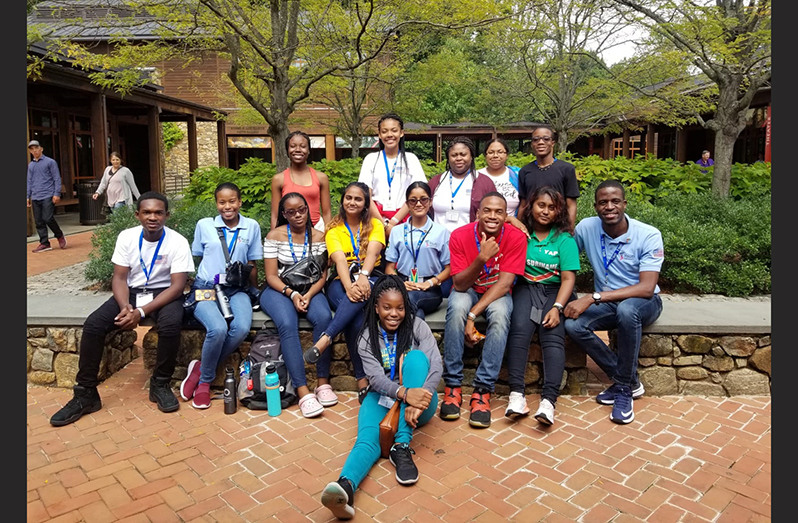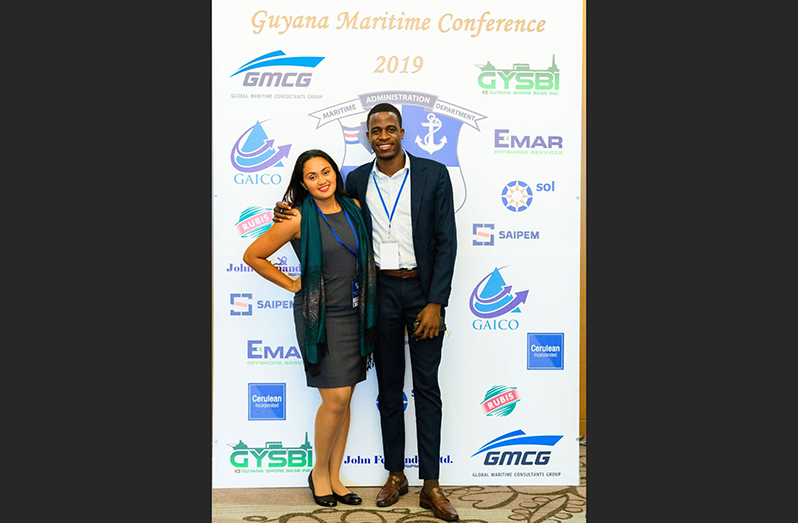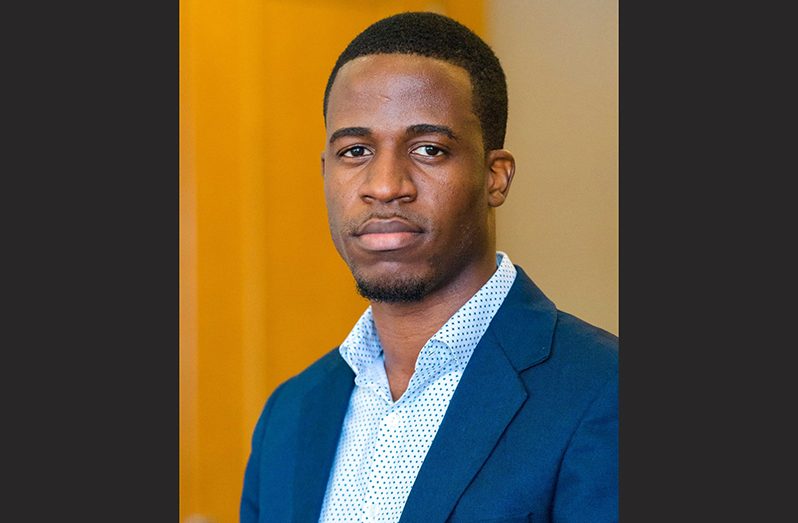TWENTY-nine-year-old Laurel Seales, an aspiring Public Health Specialist, has developed a passion for “queer” health education, and is now developing a project geared towards training medical students and healthcare workers within three of the country’s biggest public health institutions on LGBTQ+ care provision.
Seales, a member of the Global Shapers Community – Georgetown Hub, and an Alumnus of the U.S. Department of State – Youth Ambassadors Program, has been into volunteer work for most of his life, and wants to contribute to the reforming of Guyana’s public health system to ensure that everyone receives the necessary information and services to increase their overall well-being.

Based on his own research, Seales has found a high prevalence of STDs and other diseases among the LGBTQ+ community, simply because of a lack of information. “A lot of people don’t know how to get to the information they need, and many of them are not comfortable in approaching public health institutions because of stigma and discrimination,” he told Pepperpot Magazine recently.
“People are hesitant to go to public institutions to get the care that they need, and, of course, if you’re not willing to go, then you’ll neglect the signs and symptoms that will make your condition worse,” he continued.
He is partnering with local LGBTQ+ support groups and organisations, as he intends to bring awareness to issues uncovered through the medium of social media, and the creation of LGBTQ+ friendly virtual spaces that promote, educate and provide the public with meaningful and necessary health information, particularly the use of Pre-Exposure prophylaxis and health information.
One other component of the project will comprise various training sessions among final-year medical students and health workers within the various target institutions: The Georgetown, West Demerara Regional Hospital, and New Amsterdam Hospitals.
Fifty healthcare workers across various departments will be trained at the Georgetown Hospital, whereas 25 each from the two other hospitals will receive the specialised training, along with 30 final-year UG medical students.

“These training sessions will seek to educate students and workers on best practices, specific to LGBTQ+ health needs, and better ways to communicate with members of the LGBTQ+ community in the healthcare setting,” Seales shared.
Meanwhile, Seales has been a youth leader and volunteer for the past ten years, and has since developed a great passion for youth development and public health. After leaving high school, he received training from the Government of Guyana in medical laboratory science, and served at the National Public Health Reference Laboratory, and later the National Blood Transfusion Service.
He then began medical studies at the Greenheart Medical University, while also pursuing a Bachelor’s Degree in Youth and Community Development at the University of Guyana.
In addition to the lack of friendly, free and non-discriminatory access to healthcare services by the LGBTQIA+ community in Guyana, he has found that there is also a lack of universal provision and education on Pre-Exposure Prophylaxis (PREP) “which research has shown has a 99.9 per cent rate of reducing the spread of HIV/AIDS, particularly in the LGBTQ+ community.”

He believes the issues identified can also be addressed through programs for medical students that offer substantial depth and training in multiple aspects of healthcare for LGBTQ+ patients, with the goal of increasing the number of LGBTQ+ competent medical professionals, both regionally and nationally.
The training will provide modules and didactic courses geared at educating medical professionals on topics such as Trans health, communications skills, gender and sexuality, and overall LGBTQ+ competent care.
“Discrimination within public healthcare settings can prevent LGBT persons from accessing the care they desperately need, due to verbal or physical abuse within these facilities, or even breaches of confidentiality. Because of such discrimination, a significant proportion of LGBTQ+ persons either seek healthcare rarely or not at all,” he pointed out.



.jpg)









